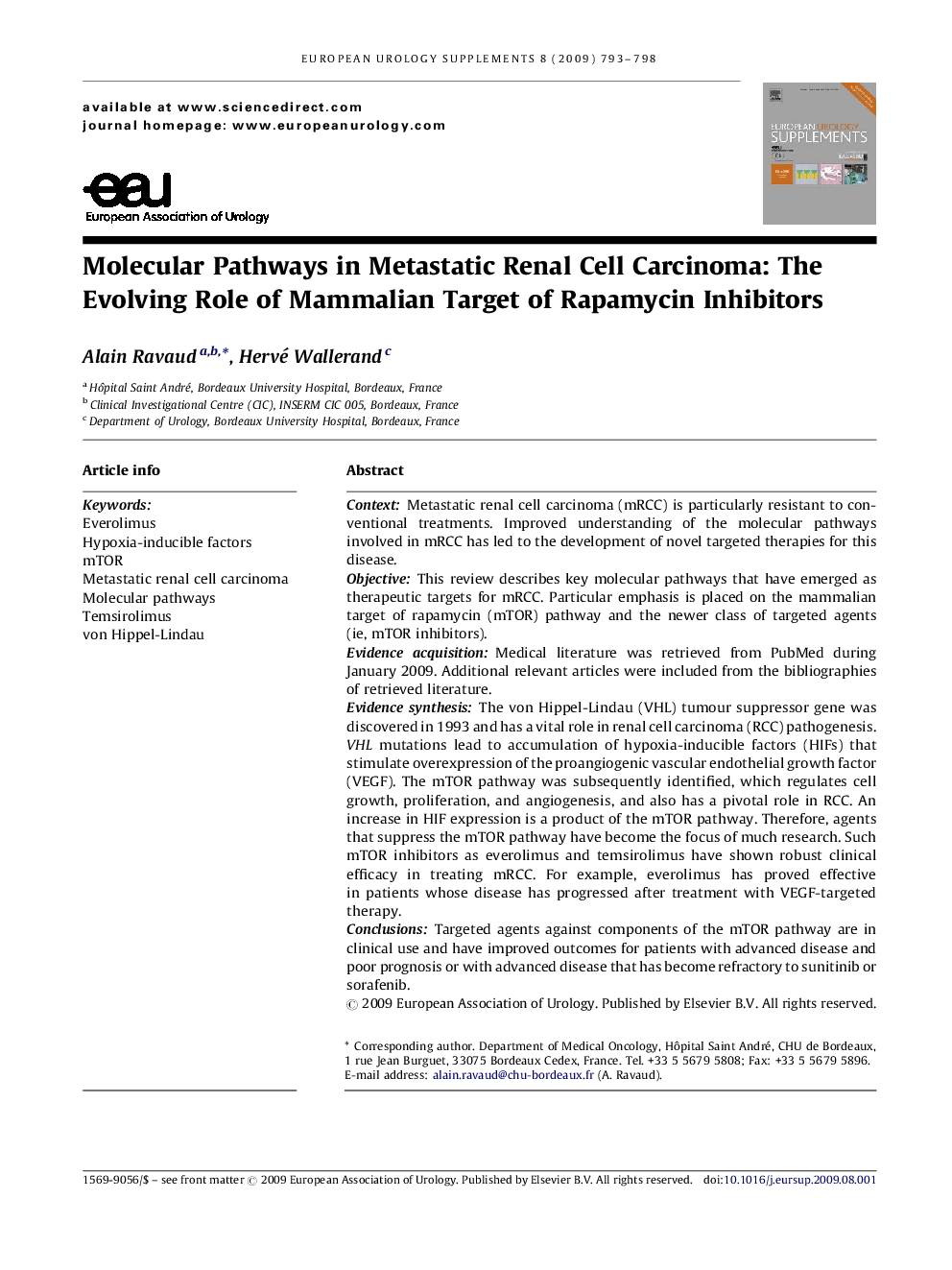| کد مقاله | کد نشریه | سال انتشار | مقاله انگلیسی | نسخه تمام متن |
|---|---|---|---|---|
| 3933629 | 1253357 | 2009 | 6 صفحه PDF | دانلود رایگان |

ContextMetastatic renal cell carcinoma (mRCC) is particularly resistant to conventional treatments. Improved understanding of the molecular pathways involved in mRCC has led to the development of novel targeted therapies for this disease.ObjectiveThis review describes key molecular pathways that have emerged as therapeutic targets for mRCC. Particular emphasis is placed on the mammalian target of rapamycin (mTOR) pathway and the newer class of targeted agents (ie, mTOR inhibitors).Evidence acquisitionMedical literature was retrieved from PubMed during January 2009. Additional relevant articles were included from the bibliographies of retrieved literature.Evidence synthesisThe von Hippel-Lindau (VHL) tumour suppressor gene was discovered in 1993 and has a vital role in renal cell carcinoma (RCC) pathogenesis. VHL mutations lead to accumulation of hypoxia-inducible factors (HIFs) that stimulate overexpression of the proangiogenic vascular endothelial growth factor (VEGF). The mTOR pathway was subsequently identified, which regulates cell growth, proliferation, and angiogenesis, and also has a pivotal role in RCC. An increase in HIF expression is a product of the mTOR pathway. Therefore, agents that suppress the mTOR pathway have become the focus of much research. Such mTOR inhibitors as everolimus and temsirolimus have shown robust clinical efficacy in treating mRCC. For example, everolimus has proved effective in patients whose disease has progressed after treatment with VEGF-targeted therapy.ConclusionsTargeted agents against components of the mTOR pathway are in clinical use and have improved outcomes for patients with advanced disease and poor prognosis or with advanced disease that has become refractory to sunitinib or sorafenib.
Journal: European Urology Supplements - Volume 8, Issue 10, November 2009, Pages 793–798